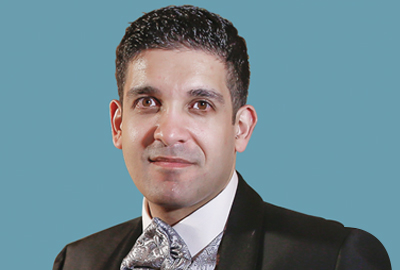Developing lawyers for the future

We need to adapt to the new ways of learning, even if it means ditching the traditional class-based mode of learning,” writes the head of legal of Aggreko.
The role of the in-house lawyer is evolving. The modern in-house counsel must possess a repertoire of non-legal knowledge and skills to enable clients to stay ahead of the technological revolution. Lawyers within the profession must upskill and employers must in turn, support lawyers who wish to learn new skills.
British Supreme Court Justice Jonathan Sumption argued in 2012 that lawyers should study a non-law degree first before entering the profession. Studying law, Sumption argued “…is not a particularly good training for the handling of evidence, or for acute social observation, or for the exercise of analytical judgments about facts, all of them essential judicial skills”.
I accept that law degrees are difficult to obtain and expensive. However, visualise the IP lawyer who is unable to understand chemical reactions whilst advising a client on how to patent a new drug. What about the construction lawyer who is unable to understand how to read a site layout plan?
I believe that lawyers must possess a broad technical base level of knowledge, a mile wide and an inch deep if you will, in order to understand the technical complexities that they must infuse within their legal advice. This does not mean that lawyers within the profession need to go back to university to study another qualification. However, clients are entitled to expect that lawyers offer more for less, particular within industries that are highly speculative or suffer from diminishing returns.
There is a more critical reason: Klaus Schwab, Founder of the World Economic Forum said in 2015: “In the new world, it is not the big fish which eats the small fish, it’s the fast fish which eats the slow fish”. The pathways within businesses through which new ideas, products and services are brought to market are seldom nimble to adapt to the breakneck pace of the current technological revolution.
Thus, lawyers must be able to assist clients by shortening the time between issuing legal advice and effecting business change based upon that advice. To put it bluntly, lawyers must become change agents to enable their clients to become those ‘fast-fish’.
Employers too must recognise the need to upskill their in-house counsel and invest in them for the future. This is a dilemma best explained by way of an analogy: a CEO and a CFO were discussing the forthcoming training budget. The CFO stated, “We shouldn’t invest money training our people. They’ll use their new knowledge to find other jobs and leave”. The CEO rhetorically replied: “So what happens if we don’t invest in our people and they stay?”.
In-house lawyers must themselves fulfil their lifelong learning obligation to employers by investing time to learn new skills such as project management, business process re-engineering and data analytics. However, our most precious commodity is time. Work pressures, personal commitments as well as the basic need to get a decent night’s sleep limit the amount of time that lawyers can spend in class or attending lectures.
However, MIT, Harvard and other world-class universities have put their learning material online and we can access that material via our smartphones, sometimes for free. We need to adapt to the new ways of learning, even if it means ditching the traditional class-based mode of learning.
The in-house lawyer must evolve. If only for the love of learning, we owe it to our clients to keep pace with their challenges. If we fail to do this, we face the risk of being rendered obsolete, supplemented by artificial intelligence or replaced by the younger digitally-savvy generation, most of whom held a smartphone before their first birthday.
Columnist:
Khaled Shivji – head of legal – Middle East & North Africa, Aggreko plc
























































































































